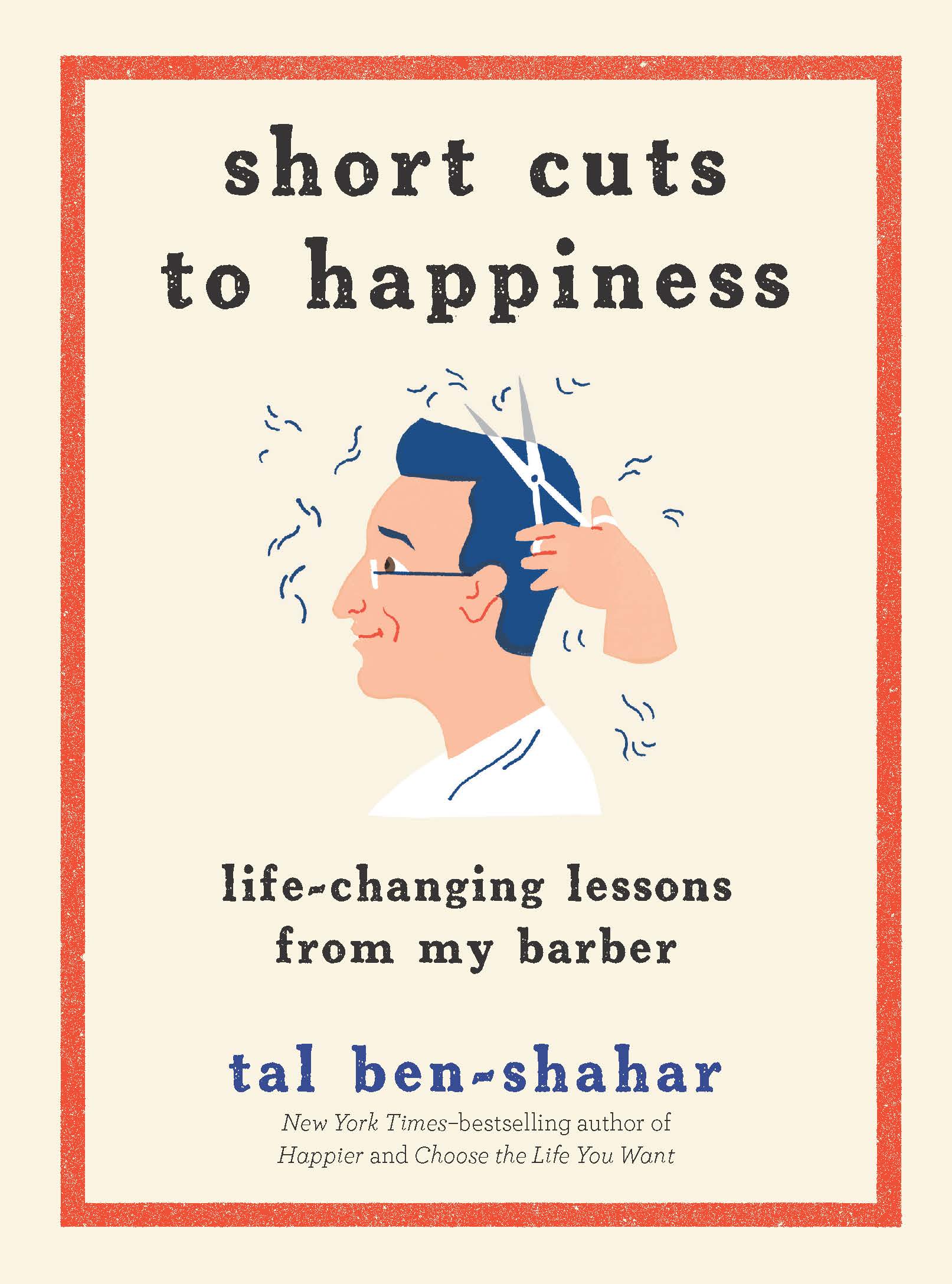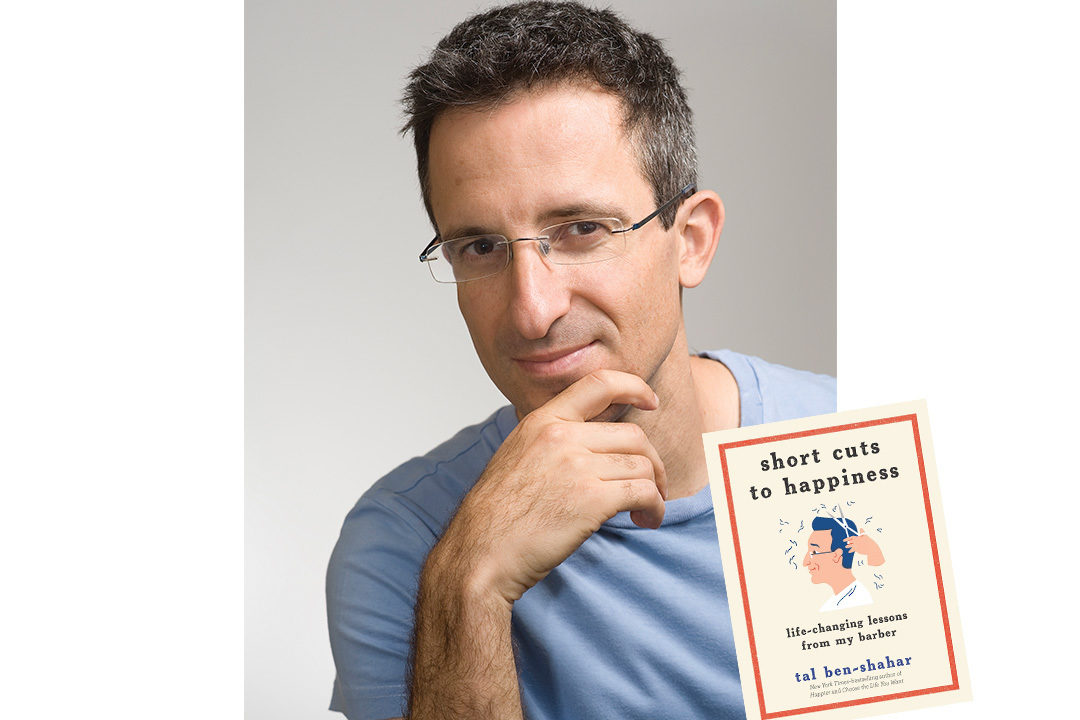We go to the hair salon or barbershop in search of some kind of change. We ask for anything from a minor trim to a major cut, a barely perceptible highlight to a transformational new color. Many of us, however, secretly or openly desire to go beyond external change, beyond altering the way our head looks from the outside. What we truly seek is internal change—anything from a trim to a transformation of that which goes on inside our head.
As a result, many of us tend to have a special relationship with our hairdresser or barber. We freely share our cares and concerns, our sorrows and secrets, as we seamlessly extend the trust we have in their adept hands, swinging sharp scissors, to an overall trust in them. And when our defenses are down, when resistance is gone, when the wall separating us from the world collapses, it is then that we are ready to listen, to grow, to learn.
This book is about the big lessons I learned from my barber, Avi Peretz, who for almost twenty years has been working in the same small salon in a small neighborhood in Ramat Hasharon, a small suburb of Tel Aviv. The salon is a well-known fixture in the local landscape, located in the neighborhood center, alongside Café Caramel, Yuval’s convenience store, and Jacob’s grocer. Together, these entities encircle an area paved with large tiles, unevenly spread, some of them broken; a wooden bench that was once green, now worn out by the harsh Mediterranean sun; and a few dozen postboxes, each belonging to a family living nearby. Witnessing this all is the old tree with roots bulging out of the paved floor, providing shade to the grown-ups talking about their new startup, the children playing tag, the cats and dogs and pigeons coexisting peacefully.
In the midst of all this, Avi’s salon is a gathering place that provides women, men, and children living in the neighborhood much more than a hairdo. His relaxed manner and generous hospitality, his wit and wisdom, affords people just what the fast-paced, high-tech, postmodern world lacks.
I had been going to Avi for a haircut since 2010, shortly after returning to Israel from the United States. And though I always enjoyed my time in the salon, and always learned something from Avi, it was only in 2014 that I started to take notes, to document the lessons I learned each time I visited.
It was ten years earlier, almost to the day, that I submitted my doctoral dissertation. Whether this was a coincidence or a carefully orchestrated move by my subconscious I don’t know, but the point is that since 2004 when I completed my academic training, I had a persistent desire to return to school, to learn in a formal setting again as I had done for most of my life. And while I continued to read extensively after graduating, I missed the face-to-face learning I had been accustomed to as a student in a classroom. Starting to write this book was my formal return to informal education—only instead of a classroom I attended the salon; instead of a professor there was my barber. The lectures were short rather than long, with silence creating space around the words—words that were inspiring and thought-provoking, that communicated little theory and much practical wisdom.
On Taking a Break
Mornings were my favorite time of day to get a haircut. There were always fewer people and more one-on-one time. On a cold wintery morning in January of 2016, Avi greeted me, as he often did, with his song du jour, the one that, in his words, would “take me places.” This one was by the Israeli singer Idan Raichel, with a call to action to embrace every opportunity of every day—since who knows when we’ll run out of chances?
Avi told me that he had decided to not let any more chances go by; he wanted to take a break to spend more time reading, listening to music, and visiting new places. Periodically, Avi would close shop for a week or a month, and head off on a journey. He knew that this practice wasn’t great for business, and that beyond the fact that he wasn’t earning any money while away, some customers might leave. He also knew, though, that there were more important things than business.
Avi often asked himself the question, “If I had one week to live, what would I do?” I have been asked this question many times before—in self-help seminars and such—but coming from Avi, it seemed to carry more weight. I knew him well enough to recognize that, for him, the question wasn’t merely academic; he was living the answer.
I recently read Stanford psychiatrist Irvin D. Yalom’s novel The Schopenhauer Cure, about a psychotherapist who has to deal with his own mortality after he’s told that he has less than a year to live. Avi’s reflections reminded me very much of Yalom’s. Avi spoke about how, no matter if we have a week or fifty years of life ahead of us, life always feels too short for what we want to do, and, at some point, it ends. So why wait? “Moreover,” he added, “even if I do live to be a hundred, I don’t want to visit the Wall of China and be carried by a golf cart; I want to run up the stairs.”
There is a Buddhist practice that I always thought was extreme, though interesting, which involves meditating in a cemetery. The purpose of this practice is to focus attention on the temporary nature of reality, and hence on what truly matters in the present. I doubt that Avi ever had a sitting session among the graves; he didn’t need the dead to remind him to live.
“See you in a few days; I’m off to London tomorrow,” I said and thanked him. He smiled and reminded me: “Have a wonderful journey.”

Excerpted from Short Cuts to Happiness: Life-Changing Lessons from My Barber © Tal Ben-Shahar, 2018. Reprinted by the permission of the publisher, The Experiment. Available wherever books are sold. theexperimentpublishing.com
Follow us here and subscribe here for all the latest news on how you can keep Thriving.
Stay up to date or catch-up on all our podcasts with Arianna Huffington here.

